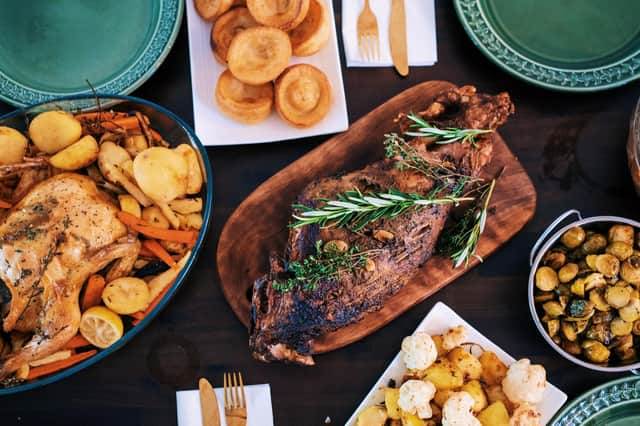Top tips to avoid festive food 'comas'


This article contains affiliate links. We may earn a small commission on items purchased through this article, but that does not affect our editorial judgement.
Overindulging and excessive eating and drinking can have a negative impact on the body with bloating, digestive issues and fatigue all common symptoms of festive gatherings.
No one wants to miss out on festivities with family and friends after falling into a state of drowsiness for hours after eating. For those that often find themselves feeling sleepy after their lunch, Ali Orr nutritional therapist at food intolerance test specialist York Test has provided her tips to help people avoid seasonal food comas.
Pace your eating
Advertisement
Hide AdAdvertisement
Hide AdOverindulgence is typically the main trigger for that afternoon slump, we fill up and then fill up some more. Often, we wake up and start picking at the sweets as soon as they’re out of the stocking.
On many occasions, this kind of eating is squeezed into a short amount of time, which makes it easy to eat too much, too quickly. This kind of overconsumption puts pressure on the digestive system and unsurprisingly leads to a slump in energy in the afternoon.
To help prevent overindulgence, start the day earlier and pace out the meal, ideally leaving at least an hour to 90 minutes between meals to allow for food to digest properly.
Start the day right
A high protein festive breakfast such as scrambled eggs with bacon or eggs benedict, is both a tasty and effective start to the day. This type of breakfast helps to stabilise blood sugars and fill you up enough to prevent you getting ravenously hungry later on in the day, which inevitably leads to overeating.
Advertisement
Hide AdAdvertisement
Hide AdA protein-packed breakfast will also reduce the urge to snack before lunch. Once you’ve had breakfast don’t eat until lunch, you’ll build an appetite and enjoy your Christmas dinner all the more.
Prioritising protein again at your Christmas lunch will help fill you up. Protein is harder to digest so the energy is slower to be released into the bloodstream, this prevents that slump we can often get from eating too many sugary treats that are easy to digest.
Watch for tryptophan
The main meal at many Christmas Day feasts is usually laden with lots of fat and carbs. Turkey contains tryptophan, one of several essential amino acids, which combines with the high carbohydrate content of bread and stuffing to cause the slump at the end of the meal.
Reducing the turkey portion size and minimizing the bread sauce consumption could help to keep energy levels high, without taking away too much enjoyment from the meal.